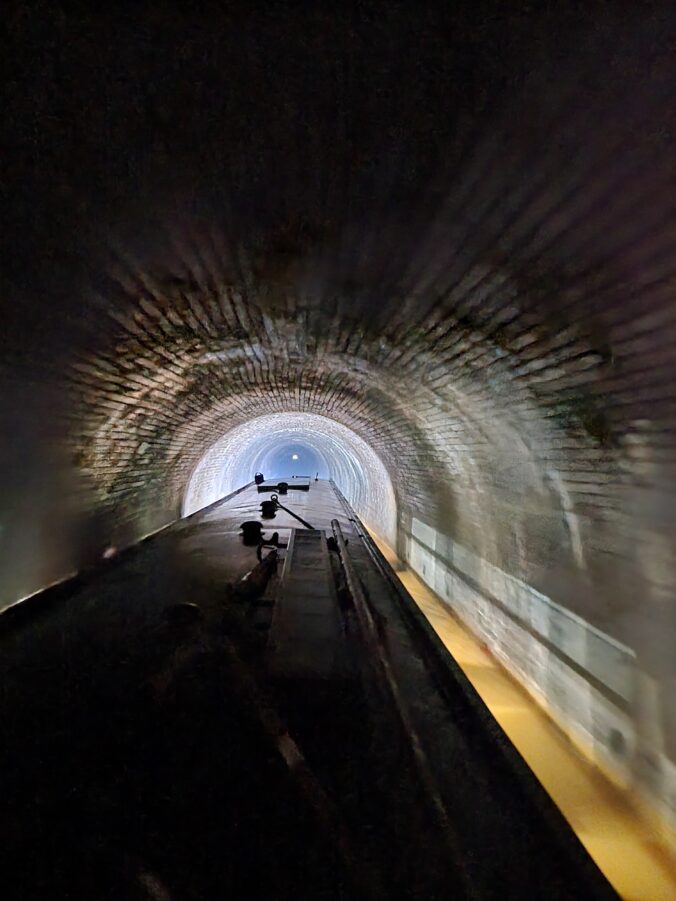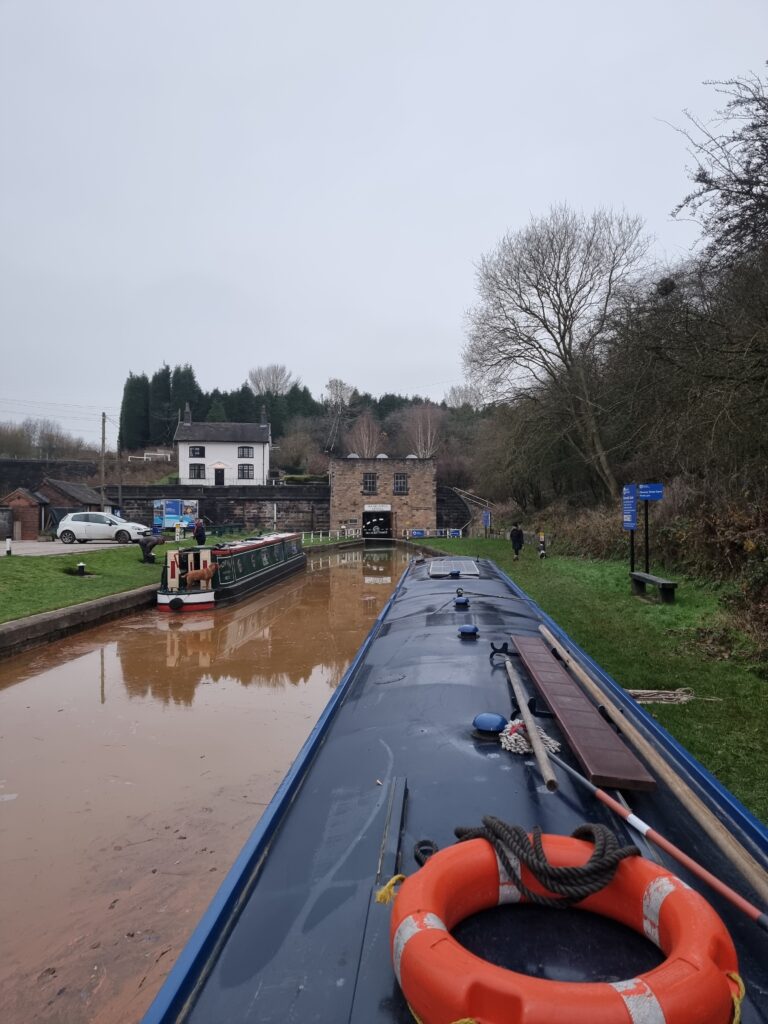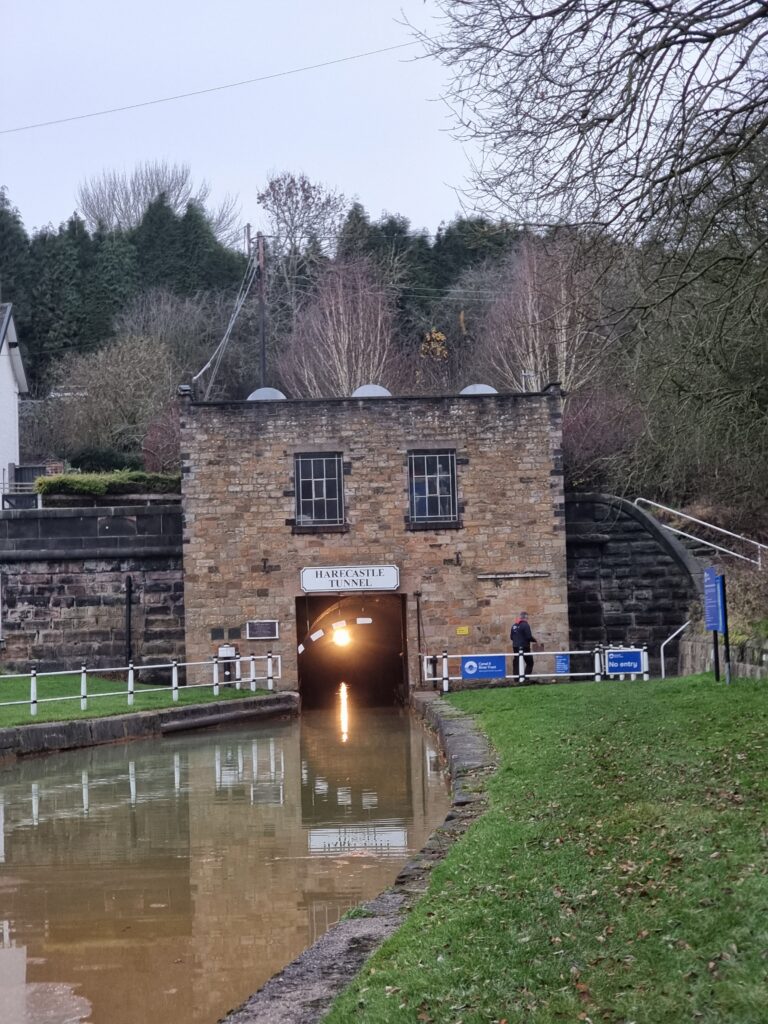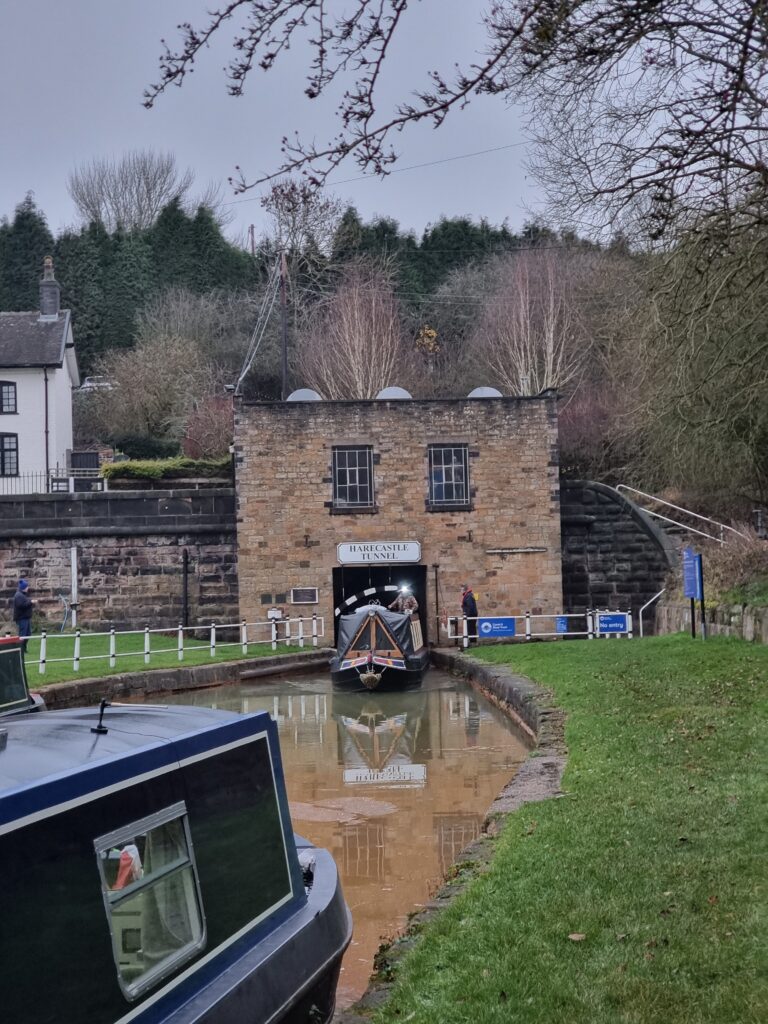We awoke one morning ready for a big travel day north on the canal, but as Fi surveyed the days route she discovered we had to book to go through a tunnel that was only an hour away. So far it had been a turn-up-and-go system.
We quickly got on the phone and tried to book a passage, but soon discovered the boat was too deep to fit through the tunnel. Surely an administrative oversight in the boats registration as it didn’t seem any bigger than any other boats. A quick cycle to the tunnel entrance and we were assured that if we turned up at 8:30am in two days time the tunnel master would sort us out (or send us back). Boats go through the tunnel in convoy in one direction at a prescribed time and when they all emerge a convey enters from the opposite direction.
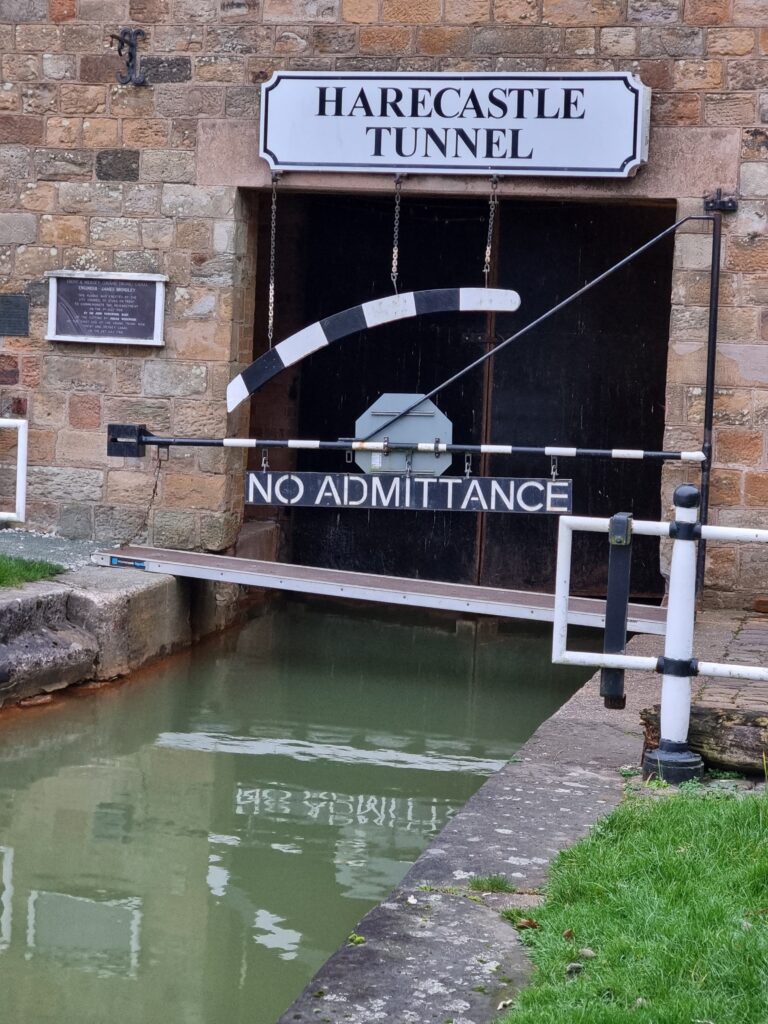
With a day to kill in the Stoke-on-Trent we went in search of a booster. We walked for four hours but were rewarded with sore shoulders and the knowledge that we were once again as safe as we could be from the raging pandemic. We celebrated with one of the finest stouts we’ve tasted made at the local Titanic brewery.
A little research revealed that the tunnel entrance was indeed the largest part of the tunnel and as you progress it keeps getting smaller and smaller until you can only just peer over the top of the deck. How are you supposed to steer if you can’t see forward we wondered? And was the boat really too big and might it get stuck in the narrow section miles underground in an unlit tunnel?
But before we could answer these questions we discovered some poor chap a few years ago had not seen one of the tunnel narrowings and was knocked off the back of the boat. There were others on the boat but they didn’t notice. Was his helming so bad that no-one noticed that he had gone? Should we tie ourselves on? The poor fellow was found eight hours later and unfortunately did not survive the experience.
These days safety has improved and they check the number of people on each boat that goes into the tunnel and then count the boats and people that come out the other end. One might wonder if you had fallen into the almost freezing water, been run over by all the boats behind you, and then waited 20 minutes for your boat to emerge and another 20 for the rescue boat to come searching, that perhaps this was merely a measure to avoid the build up lost souls in the tunnel.
At 8:30am after a sleepless night pondering how a claustrophobic helmsman would manage 40 minutes 1600m under ground in an ever narrowing unlit tunnel, we arrived for our safety briefing. Horn, check, headlight, check, 2.5 people onboard, check. We lined up the second vessel to enter, but exuded such a quiet confidence that we were soon promoted to tunnel leader with some excuse about the other boat having a smelly engine.
The vessel coming south squeezed out of the tunnel entrance and we were on! The tunnel master counted both boats as we entered the tunnel. Trying hard to appear semi competent to onlookers we managed to negotiate the entrance without hitting the wall. As the boat behind us entered, they shut the door behind us and started the large and noisy exhaust fans. Here we go.
The tunnel is brick lined with the occasional drip of water dribbling onto the boat. There is no tow path so there is no where to escape the water if you were unfortunate enough to take a dip. They say the air is cold inside, but at this time of year it actually warms up as you progress deeper into the tunnel.
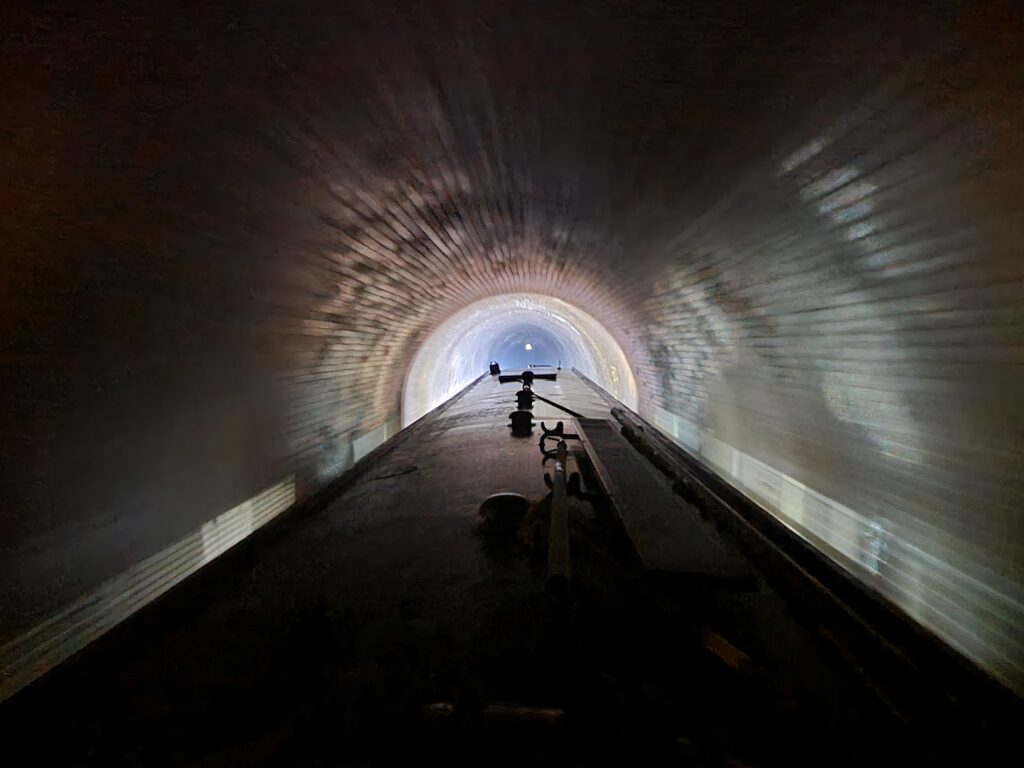
After about 10 minutes the roof gets a little lower. And then a little lower again. This keeps going until you don’t think it can get any lower, and then it gets lower again. The boat does self steer to some extent with the wake reflecting off the tunnel wall and keeping it straight. There are some big chips out of the top and lower edges of the tunnel where it narrows, confirming that it is possible to miss the tunnel. We imagine that hitting the tunnel wall would be followed by a period of quiet consideration of the older parallel tunnel that was closed due to subsidence.
After about 30 minutes the tunnel expands and the light of the exit door comes into view. Its still 10 minutes away but its presence is somewhat reassuring. The exit is quite difficult to negotiate as you are blinded by the semi daylight of an overcast English winters day and need to avoid a strategically placed work boat right in the tunnel entrance. But the overwhelming pressure to exude calm confidence to tunnel master busy doing his addition, helped us negotiate the tight entrance with a jolly wave and all infrastructure intact.
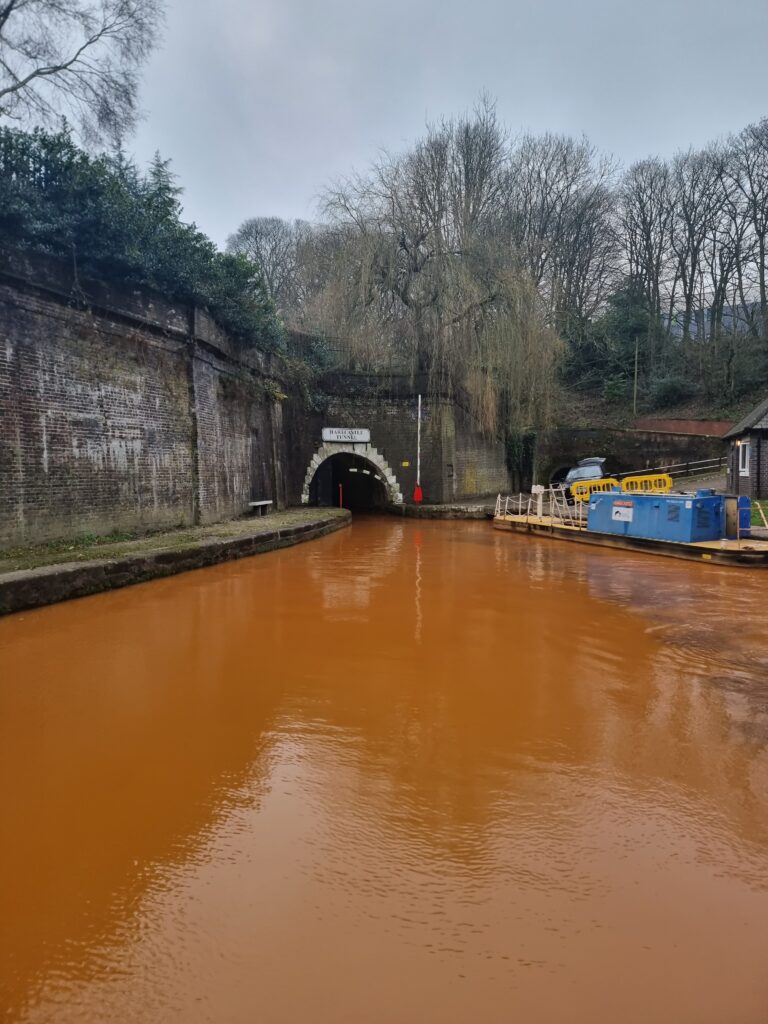
All in all it was a unique and fascinating experience. Would we do it again? Well as it happens its our only route south so we will be in for a repeat experience which, we are rather looking forward to…
